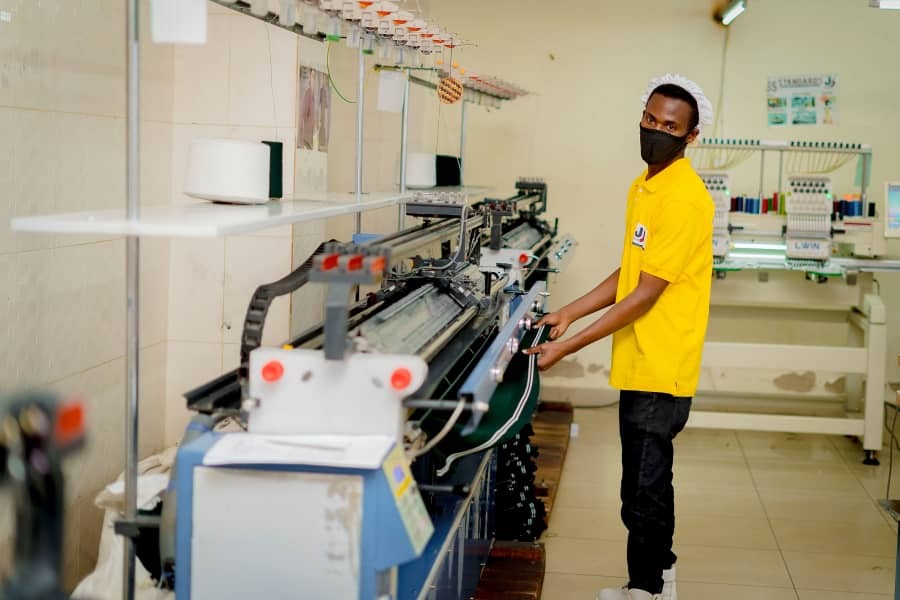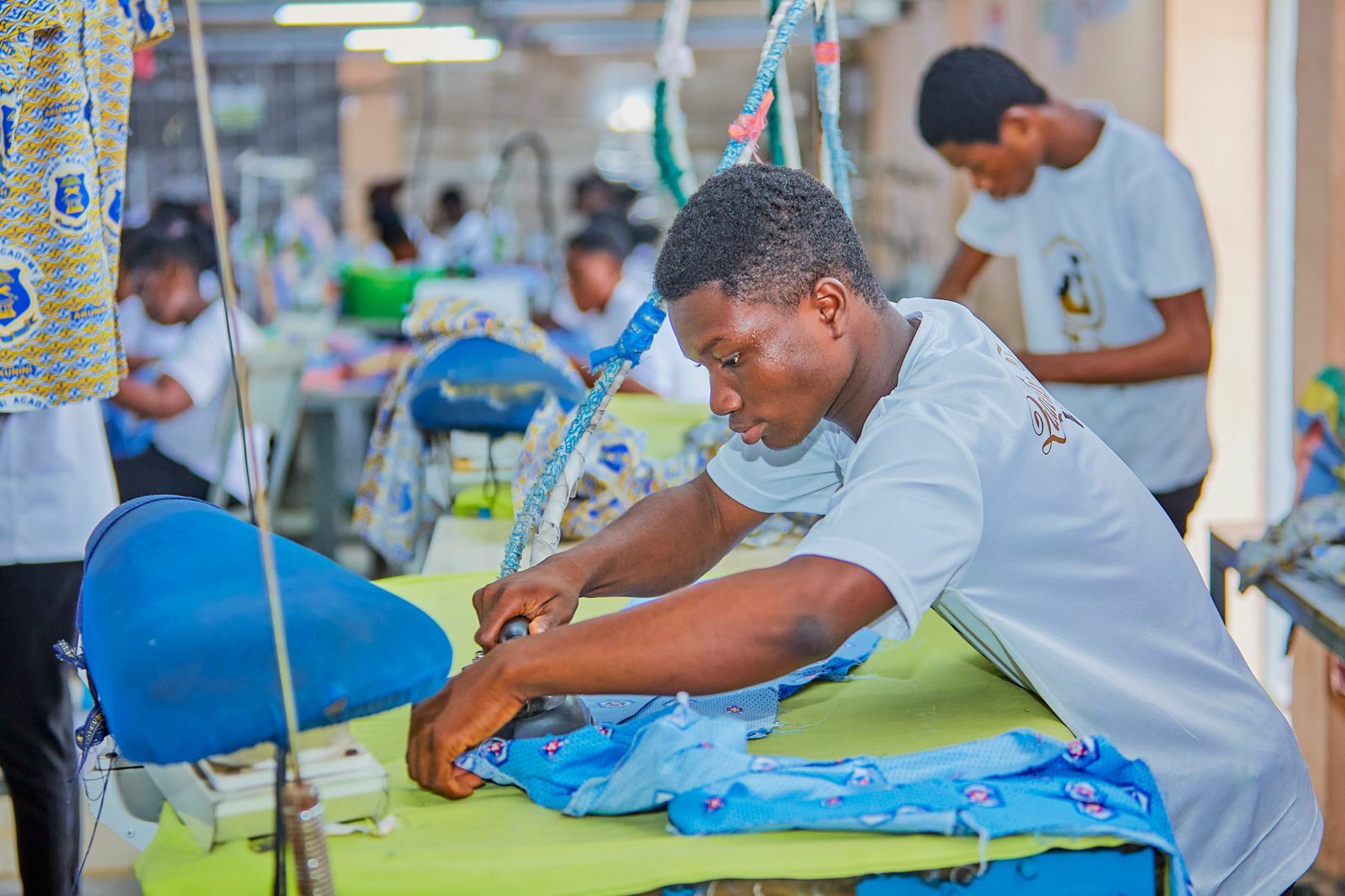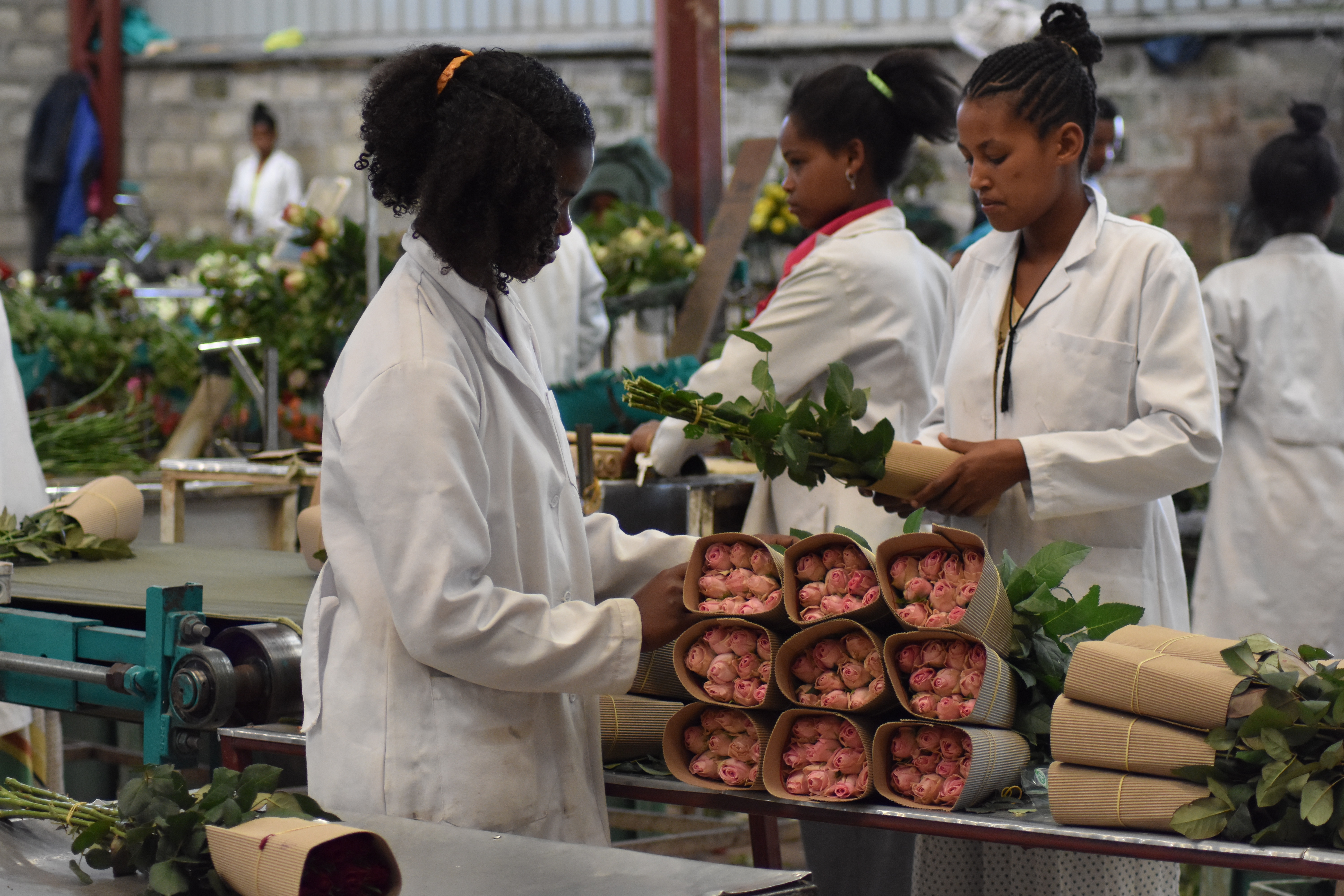The Facility Investing for Employment supports new investment projects
Textile manufacturers, a hospital, an agricultural business and an industrial park: several new projects in Ethiopia, Ghana and Rwanda have been selected for a grant by the Facility Investing for Employment (IFE) between March and May 2024.
The calls for proposals organised in 2022 and 2023 and the accompanying marketing campaigns are bearing fruit: Grant agreements were signed for five projects in just three months. The investment projects will create a total of around 4,000 good new jobs. All employees will have access to the local social protection systems through their new employment. This includes, for example, pension, health and accident insurance. Particularly in rural regions of the three countries, where good jobs with social benefits are rare, the Facility Investing for Employment will make an important contribution to the creation of sustainable working conditions.
Rwanda
 © Janiya Investment // Janiya Investment will produce its own fabrics in the future.
© Janiya Investment // Janiya Investment will produce its own fabrics in the future.
The partner company Janiya Investment from Rwanda has around 200 employees and has been producing garments since 2019. They are sold locally. The processed fabrics were previously imported from Kenya, Uganda, China and India. To expand production and be able to produce its own fabrics in future, a knitting mill and a textile factory are now being built in the Muhanga Industrial Park, which will be able to make over 1 million garments a year at full capacity. In future, they will also be exported to neighbouring countries. The company plans to create more than 300 new jobs.
Ghana
 © Unijay // Unijay is building a vocational school for textile workers in Kumasi.
© Unijay // Unijay is building a vocational school for textile workers in Kumasi.
In Ghana, the companies Unijay and the Unijay College of Arts and Design will build a vocational school for textile workers in the city of Kumasi. Unijay has been producing garments since 2002, which are mainly sold to customers in Ghana. The new center of excellence is aimed primarily at young people from the center and north of the country. Within three years of the start of training activities, around 2,000 people are expected to complete the courses and thus qualify for a good job in the textile industry.
Ethiopia
 © Tinaw Business Share // Tinaw Business Share invests in 28 new greenhouses for cut flowers.
© Tinaw Business Share // Tinaw Business Share invests in 28 new greenhouses for cut flowers.
The IFE portfolio in Ethiopia
has also grown, and three new grant agreements have been signed. Kadisco Hospital in Addis Ababa is a privately run 65-bed hospital with an emergency room, surgery, radiology and its own laboratory. It will build a nine-storey extension to the existing hospital. The number of beds will increase to 165 and the number of patients is set to double. Economically weaker sections of the population will also have access to treatment. The expansion should make it possible to create around 300 jobs for medical professionals and train more than 340 people.
The state-owned company Industrial Parks Development Corporation (IPDC) operates the Hawassa Industrial Park, which is located 270 kilometres south of the capital. The water that IPDC provides to the companies operating in the industrial park is contaminated with fluoride, which poses a health risk and makes it difficult to use the water for industrial processes. The Facility Investing for Employment is financing the purchase of a new water treatment plant. The water will then be WHO-compliant, making Hawassa Park more attractive. The establishment of more companies is expected to create 300 new jobs.
In the southern part of Ethiopia, the Tinaw Business Share Company grows cut flowers, mainly roses, with more than 1,000 employees. The company is certified according to international environmental and sustainability standards. The flowers reach the global market via auction houses in the Netherlands and are also sold directly to wholesalers. Tinaw aims to double its flower production by 2026. To achieve this, Tinaw is building 28 additional greenhouses and refrigerated warehouses, ILO-compliant accommodation for 300 workers, a canteen, a health centre and a childcare facility near the current plant. The additional water pumps and cold stores required will be powered by the company's own solar system. 1,200 new people will be employed.
The five companies applied for a grant from the Facility Investing for Employment and took part in a two-stage selection process. The Facility will disburse its funding in a step-by-step process. Applicants will only get access to the next tranche if they reach pre-defined milestones that are part of the grant agreement.
We keep you posted on project updates on our website project overview and LinkedIn channel.